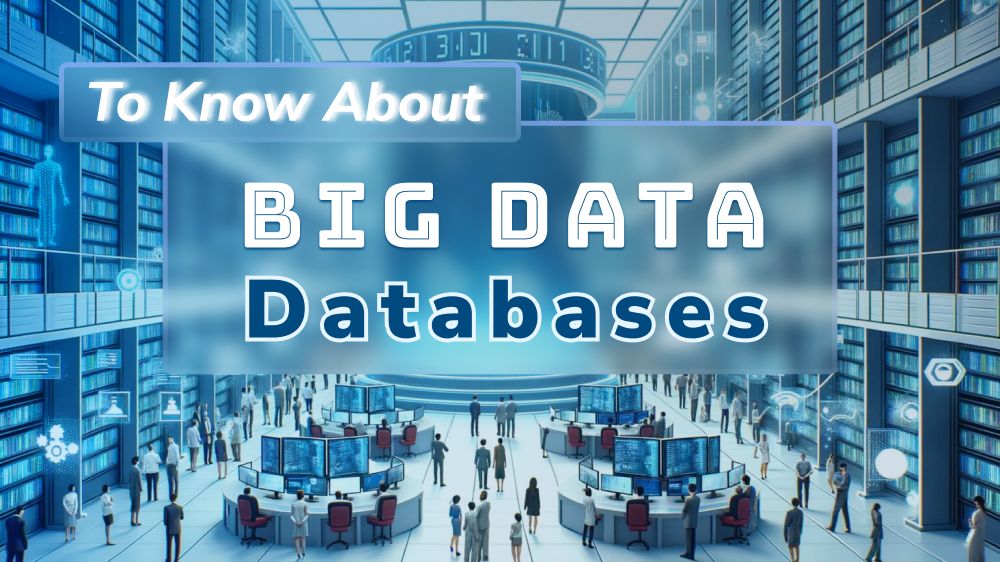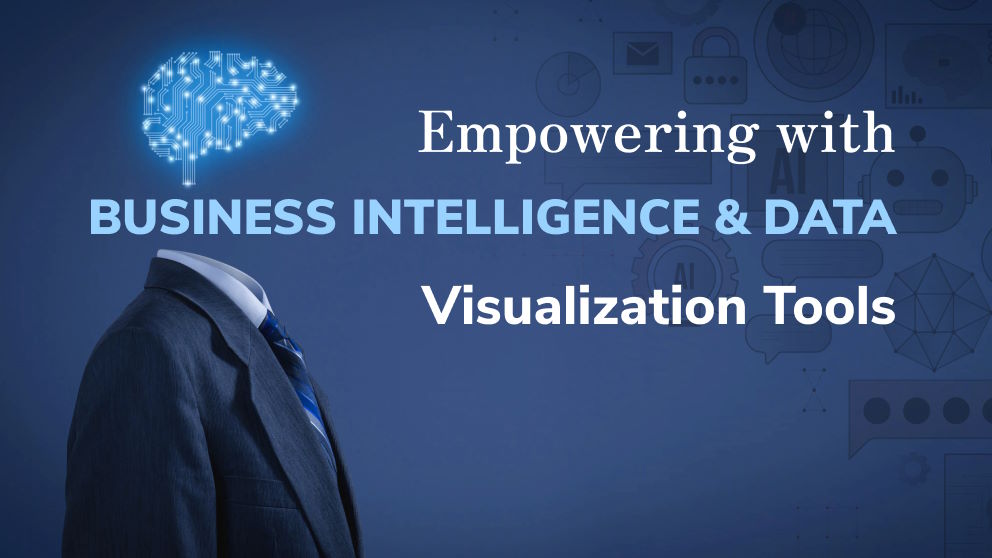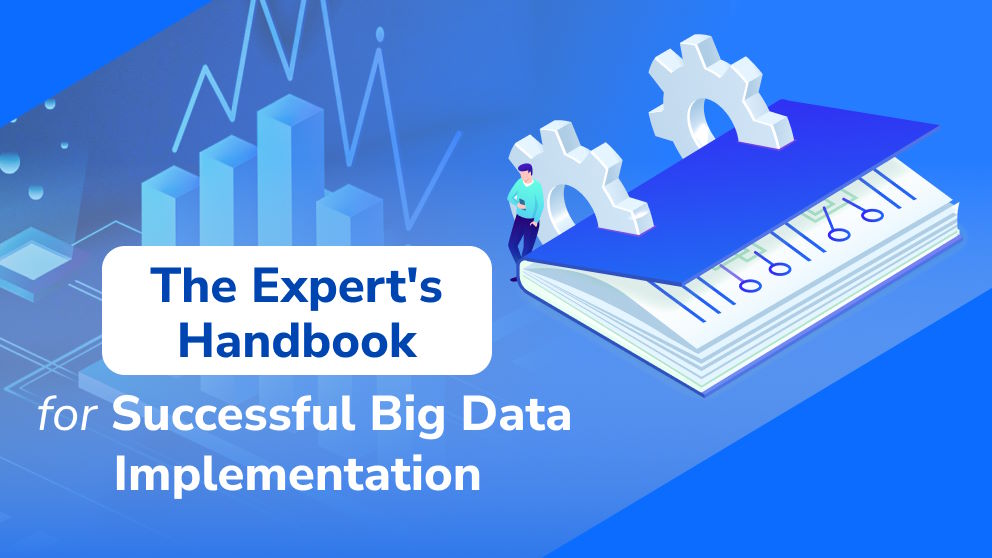What Are the Common Big Data Challenges & the Best Ways Out?

Content Map
More chaptersPerhaps you may not pay attention, but we are currently producing more data than we have done in our entire history. With each and every second passing by, we have 40,000 Google search queries submitted per second, which means the total amounts will reach approximately 1.2 billion each year. And that is only what we measure for the Google search engine only, regardless of other digital platforms and sources. According to a report updated in 2022, 99.5% of collected data was left forsaken and never got used or analyzed. It is such a waste, isn’t it? Therefore, vast and rapid data growth definitely results in the greater need for data analytics and business intelligence; this is when the concept of big data analytics shows up and gets hype.
Big data now is no longer a strange concept in today’s business world. On the contrary, its growth and popularity in multiple industries exceeded any imagination and prediction when the global big data industry was reported to reach $274.3 billion in 2022. Plus, big data technologies are highly expected to fuel the next wave of business digital transformation and open up new opportunities for various industries to thrive in the future. According to Statista, the global market of big data is promised to expand in the upcoming years, and perhaps it will hit a record of $68 billion by 2025. Despite the rapid rise in big data adoption and the beneficial applications it brings, many organizations are still struggling to find ways to take full advantage of it.
A Brief Recap of Big Data Concept
In case you are newbies to this topic, let’s define big data in its simplest terms. Big data is a broad yet popular term referring to a massive volume of structured and unstructured data that is generated at a fast pace and complex level so that it cannot be handled by traditional databases or software techniques. The ultimate goal of big data adoption is to analyze all the data, extract actionable insights from raw data, and convert them into valuable information for business processes and decisions.
The applications of big data analytics are diverse, but some of the most common ones include predictive analysis and maintenance, network security, customer segmentation & personalization, real-time fraud detection, and so on. Each application delivers a unique value to businesses in different sectors like software development, healthcare, retail, etc. The benefits that businesses can enjoy from big data implementation are also diverse and significant, which span from increased operational efficiency to optimized marketing campaigns and enhanced customer experience. However, as more organizations have started to realize the potential of big data analytics in driving business growth, they also face numerous challenges that prevent them from leveraging big data to the fullest.
Biggest Big Data Challenges & the Solution for Each
Undoubtedly, big data does bring a wide range of beneficial applications, and its rise has no sign of being stopped anytime soon. However, as beneficial as it is, implementing the big data solution for business certainly comes with a lot of challenges, and that is what we are going to make clear right now:
Lack of Expertise & Skilled Workforce
Although the concept of big data is getting hyper and more prevalent, it is still a niche that remains uneasy or even challenging for businesses to step in and master since it involves a lot of complex tools as well as technologies and requires qualified specialists who have solid knowledge and experience in it. Unfortunately, the current talent pool of data professionals is insufficient, leaving a big gap between the rising demand and the available workforce. Or in other words, the shortage of data professionals is the most intense obstacle businesses, especially young ones, face when they first venture into the big data world.
In addition, it is not only the data scientists or data analysts that businesses need to have on their team but also other roles like data engineers, big data architects, business analysts, and so on. Consequently, acquiring the proper workforce to steer the big data initiative can be more challenging yet more costly than expected. Additionally, the lack of experts may lead to some pitfalls when implementing big data, such as difficulties in managing data assets, data quality issues, wrong data interpretation, and lack of data governance, which all can jeopardize the success of big data projects.
Confronting such a challenge, you have one optimal solution that can resolve issues related to talent shortage and also cost at the same time. It is hiring a dedicated team of big data experts from offshore or nearshore outsourcing companies. In addition, similar to how to get over the shortage of software engineers, businesses should invest in data science education to prepare for the next generation of data specialists. Always remember, no matter how brilliant your data governance strategy is, it means nothing and results in nothing if you do not have good personnel by your side. Therefore, if you overcome this challenge of expertise and workforce shortage at the beginning of the big data adoption process, you will lay a good foundation for the success of your big data initiative.
Big Data Security & Privacy Concerns
Along with the great advantages of big data solutions, there come the threats and risks for big data security and privacy. According to the 2022 KPMG survey, 62% of companies in the U.S have experienced data breaches or cyber incidents within 2021, resulting in economic losses. Obviously, businesses have to handle a larger amount of sensitive data than ever before, and the data floods from various sources, making it daunting to manage and organize. Hence, the demand for protecting it from being mishandled or stolen also increases accordingly. In addition, the data grows at a high pace as business scales up, forcing the decision-makers to implement more tools and technologies in their big data systems for better data management and exploitation. Moreover, as more businesses are on the way to moving to cloud services, leaving the data vulnerable to cybercriminals and creating entry points for potential threats and data breaches.
Speaking of data privacy, it is also one of the currently typical challenges of big data. The concern is that the data may be mishandled and used for unethical or illegal purposes, which can violate the privacy of individuals. The recent GDPR and CCPA regulations in Europe and California are good examples that show how seriously data privacy is taken. Businesses that process the data of individuals from these regions must take extra steps to protect the data and ensure compliance with these regulations.
That explains why businesses must have the proper big data security tools and strategies in place to prevent the risks of data breaches and privacy violations to the fullest. By taking some proactive steps, such as encrypting the data, building a data classification system, and deploying security analytics tools, businesses can reduce the risk of big data security threats and protect their valuable data assets.
Poor Data Quality
This is known as one of the most significant big data challenges, so businesses should never overlook data quality. By quality, we mean all the aspects that ensure the collected and stored data is accurate, complete, and consistent. Poor-quality, fake, or invalid data probably leads to wrong data interpretation and uninformed decision-making, which can consequently jeopardize the success of big data projects. There are many factors that can affect data quality, such as human error, incorrect or missing data, duplicate data, and so on.
To address such big data risks, you need to put in place good data quality control and conduct systematic performance audits at regular intervals. Also, you can use data cleansing and data enrichment techniques to improve the quality of your big data.
Data Silos
Data silos refer to the isolated data repositories that are not integrated with each other, making it harder to have a holistic view of the data. When data is stored in silos, it becomes difficult to access, manage, and analyze, thereby wasting time and resources. Also, it hampers collaboration and decision-making as different teams have to depend on each other to get the data they need. Among the causes, the primary one of data silos is the lack of communication and coordination between different departments within an organization. For example, the marketing team may be using one CRM system, while the sales team may be using a different one. This can result in data duplication and inconsistency, making it difficult to get a 360-degree view of the customers.
Businesses need to have a well-designed data architecture in place that supports data integration and facilitates communication between different departments in order to avoid such big data challenges. Also, the key to breaking down data silos is to have a centralized data storage where all the data is stored and accessed by authorized users.
Data Integration Issues
Data integration is the process of combining data from multiple sources into a single repository to get a holistic view of the data. It is one of the essential steps in any big data project as it enables businesses to make informed decisions by giving them a complete picture of what’s going on. However, integrating data from different sources can be a challenging task as the data may be in different formats and structures. Also, there may be some data quality issues that need to be addressed before the data can be integrated.
Businesses need to have a data integration strategy in place if they strive to handle these kinds of big data challenges properly. They should also use the right tools and technologies, such as data virtualization and ETL, to facilitate the data integration process.
Inadequate Data Governance Structure
Data governance is the set of policies and processes that organizations put in place to manage their massive data. It includes all aspects of managing data from its inception to disposal. Data governance is essential to ensure that the data is of high quality and is used in a consistent and compliant manner. Lack of governance can lead to chaos and confusion and can result in bad decision-making. One of the common issues with big data governance is that it is often underfunded and under-resourced. Many organizations do not have a dedicated team to manage and govern their data. As a result, they struggle to keep up with the ever-changing big data landscape.
To overcome this challenge, organizations need to invest in good data governance practices and tools. They also need to put in place clear policies and procedures for managing data. Furthermore, they need to assign adequate resources for data governance and ensure that all stakeholders are aware of and comply with the data governance policies.
Internal Resistance
This seems to be uncommon but not nonexistent. This is an obstacle that often occurs within organizations that are in the early stage when their businesses start moving to the big data environment. Some employees may be hesitant to embrace big data and its potential benefits as they fear that it may lead to job cuts. Also, they may not be comfortable with the idea of sharing their knowledge and expertise with machines. As a result, they may resist change and refuse to use new technologies or follow new processes.
Organizations need to first raise awareness about big data and its benefits among the employees. Afterward, they need to provide training programs and support to help them learn the basic knowledge of big data technologies and how to utilize the big data tools to grasp valuable insights and achieve their work efficiency.
There you have it, some of the common big data challenges faced by organizations and the best ways to address them. While big data can be a game-changer for businesses, they need to be aware of the potential risks and challenges associated with it. By having a well-designed strategy in place and using the right tools and technologies, businesses can probably overcome the big data challenges and make the most out of them.







